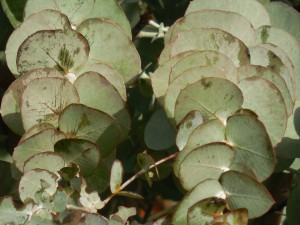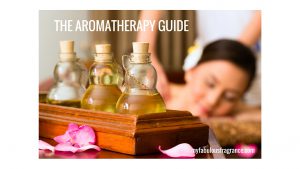Our sense of smell is linked to our sense of well-being. Aromatherapy is a type of alternative medicine that uses essential oils and other aromatic plant compounds which are aimed at improving a person’s health or mood. Aromatherapy is derived from two words: aroma meaning fragrance and therapy meaning treatment.
Essential oils are taken from a plant’s flowers, leaves, bark, stalk or root. The oils are then mixed with another substance such as oil or lotion and are then either applied directly to the skin, sprayed in the air or inhaled. Another common application is to pour them into bath water.
The practice of aromatherapy is based upon the belief that fragrances in the oils stimulate nerves in the nose. These nerves send impulses to the brain that control emotion and memory. The oils are believed to interact with the body’s hormones to cause changes in blood pressure and other body functions.
The Olfactory Research Fund, an independent charitable organization based in the US, is dedicated to the study of the sense of smell and the psychological benefits of scents. It studies how odor can transmit a range of specific feelings such as relaxation, happiness, mental alertness, and sensuality directly to the pleasure center of the brain.
Through studies and tests, they have confirmed connections between certain scents and moods. Some of their results… Lily of the valley and peppermint make students more alert, resulting in an increase in test scores of as much as 25%. Using scent in the workplace environment showed an error reduction for clerical employees of 21% with lavender, 33% with jasmine and 54% with lemon.
Although the practice of aromatherapy has been around since the 1930’s in the US, this practice has existed for over 5,000 years. It is believed that the Egyptians created the first distillation equipment and created oils infused with herbs for use in rituals, cosmetics and perfumery. Years later, Hippocrates (often referred to as the “father of medicine”) studied the effects of essential oils and health and promoted their use for medicinal purposes. Hippocrates is said to have studied and documented over 200 different herbs in his lifetime. He was one of the first to regard the entire body as an organism and also believed that surgery should only be used as a last resort. His approach differed greatly from the Egyptians, who had a prescribed method of treating any specific disease.
According to the Fragrance Foundation, some of the most common scents and there beneficial uses are:
- To reduce stress – lavender, rose, tuberose, hyacinth, neroli, vetiver
- Curing insomnia – chamomile, clary sage, lavender, neroli, ylang-ylang cedarwood, vetiver, bergamot, valerian
- Treating depression – Fir, tuberose, hyacinth, neroli, lily of the valley, bergamot, ylang-ylang, rose, nutmeg, basil, tonka bean
- Relieving anxiety – bergamot, basil, cedarwood
- Freshening air – Eucalyptus, cinnamon, lemon, bergamot, lemon, rosemary
- Energy inducing – peppermint, lemon, jasmine, lily of the valley, hyacinth
- Increasing sensuality – Musk, hyacynth, patchouli, rose, ambergris, sandalwood, mimosa, tonka bean, neroli, vetiver
- Increasing mental efficiency – mint, rose, cardamon, grapefruit, pine, basil, lemon, juniper
- Relaxing – lavender, lily of the valley, tuberose, chamomile, vanilla, rose, orange, hyacinth, fir
- Increasing happiness -osmanthus, tuberose, hyacinth, fir, lily of the valley
Source: The Fragrance Foundation, Olfactory Research Fund, International Flavors and Fragrances, The Complete Aromatherapy Handbook
http://amzn.to/28Rdkme
Essential oils that are applied directly onto the skin can be absorbed into the bloodstream. It is very important that these oils should never be applied in their undiluted form since they are very powerful and concentrated if not mixed with an oil or lotion. The practice of aromatherapy encourages the use of other complimentary natural ingredients, such as sea salts, milk powders, cold pressed vegetable oils, jojoba, clays and muds.
Some essential oils offer psychological and physical benefits when inhaled. Not only does the smell stimulate the brain to cause a reaction, the natural chemicals in the oil provide a therapeutic reaction when inhaled into the lungs. Using eucalyptus oil to help alleviate congestion is a good example of this.
Full disclosure: I am not an expert on essential oils or aromatherapy though I’m sure that’s no surprise 🙂 Discovering more about them has been more of a happy side trip in my fragrance journey. That said, the more I started learning about the history of this ancient practice as well as its therapeutic benefits I became very intrigued. I’ve actually spent some time trying to reconstruct the oils used in the best massage I’ve ever had, leaving me in a deliriously blissful state for days, and I think I’ve nailed it! I’m almost positive that it was a blend of eucalyptus, bergamot and lemon. The synergy of these oils was truly amazing!!!
Side Note: There are quite a few products out there which are not pure and natural. Not all products labeled with the word “aromatherapy” are all that! There are a multitude of bogus products on the market which contain artificial ingredients and don’t provide true aromatherapy benefits. You must look at the ingredient label to be sure that the product doesn’t contain any fragrance oils or chemicals. Any product that doesn’t list their ingredients as pure essential oils should raise a red flag.
Hope this will encourage you to give aromatherapy a try! I’d love to hear what your thoughts are!
Cheers and be well!





I am heavily into my herbal teas which have these herbs in them. Aromatherapy interests me a lot also, as a society I feel we need to take more of a homeopathic way of treating illnesses etc… instead of contantly taking pills. I have noted down a lot of the herbs and their uses from your website and will be sure to give them a go. Aromatherapy is incredibly good for the body. I have bookmarked your site for further revisions when needing a herb. Thank you.
I also love herbal teas and agree that there’s far too much pill-popping going on. I prefer at least starting with natural remedies which are safer and healthier. Thanks for having a look and glad to have introduced you to some new herbal benefits.
I am a long time user of essential oils and I love them! I swear there is nothing they can not do. With the right combinations and diffuser they can help relieve seasonal allergies, the common cold, sleep and much much more. I often diffuse lavander oil around bed time to help my very hyper active son settle down for the night. Great article.
Barbra,
Lavender is one of my favorite essential oils. Not only is it an lovely scent, it’s benefits are numerous. It’s great in a diffuser before bedtime to promote restful sleep. Also, rubbing into the temples can provide headache relief and applying topically can help with many skin irritations.
Thanks for dropping by and be well,
Erica